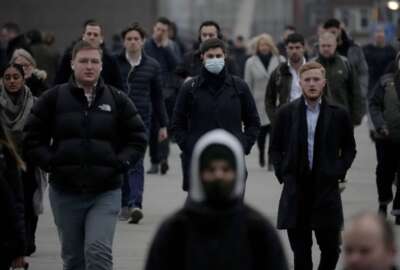The telework urge cuts across age and rank
The closer return-to-office dates come, the greater the apparent preference for telework.
The desire for continued teleworking isn’t limited to federal employee union members. Nor to only the more recent generations.
I got a call the other day from a regular reader, a career lawyer with 31 years of federal service. This person is not a bargaining unit member and has some management responsibility. She is one of a legion of federal employees who spent most of her career going into the office every day until the pandemic. She likes her work, is a bit bored though, and says she’s gotten into the habit of perusing legal job listings pretty much every day for the last six years. She’s gotten used to teleworking, but now her general counsel wants everyone back at least two days a week.
Knowing where she works (I agreed to withhold her name and agency), I can tell you: That location is a major hassle to get to and from unless you work a graveyard shift. Parking there’s no picnic either.
She told me she was annoyed that the typical listing in USAJobs.gov lacks two important pieces of information. One, how much, if any, telework is allowed, or if the position accommodates remote work. Two, the exact location of the job, its street address.
That last detail is important because, for some, the next best thing to teleworking is having a short or easy commute. The pandemic-era traffic letup has evaporated. The office itself may feel passe to a great many working people, but I suspect the commute is the main bugaboo for many others. The best commute I ever had personally was when I rented the first floor of a house, at $100 per month, two blocks from the newspaper office where I worked in a semi-rural New Hampshire town.
From an anecdotal manager, I move on to a larger sample of worker bees, namely AFGE Local 1923, which represents more than a thousand employees of the Centers for Medicare and Medicaid Services (CMS).
CMS has moved its designated return-to-the-office date to May 23rd, a week from Monday. Local President Anita Autrey said the original date was in last October, in line with what the White House was saying, but that was scrubbed because of the Delta variant.
In a Federal Drive interview, I asked Autrey if, from negotiations, she thought CMS management expected everyone to come trooping back.
“Not at all,” she said. “In fact, the agency looked at all of the employees’ positions throughout the Centers for Medicare and Medicaid Services and decided, does this position qualify for telework? Does it qualify for working remotely inside the geographic area that’s close to your office? Or does your position qualify for you to work remotely outside of the geographic area?”
She estimates 90% of not just bargaining unit members, but all employees will continue to telework or work remotely.
But there’s a twist, Autrey said. If you work remotely outside of the office geographical area, you lost locality pay. She cited someone hypothetically working remotely from Rehoboth Beach, Delaware, for the headquarters office in Baltimore. A GS-13 Level 1, Autrey estimated, would lose up to $14,000 in locality pay. The answer is, apply for telework and report into the office twice per pay period, and thereby keep the locality pay.
Not quite as convenient as fully remote, but a once-a-week schlep won’t wear you down like that daily commute.
What about all those cubicles and PCs and the rest of the detritus of a fully staffed traditional office? CMS is fielding clean-out teams, Autrey said, in anticipation of reconfiguring the spaces. Offices will be designed for hotelling or small meetings, with a reservation system under development. Even the cafeteria will undergo remodeling. Autrey noted that the agency agreed to negotiate over terms of return, as well as the restoration of office space and official time removed during the Trump administration.
People are definitely on the move. I took a rush-hour Metro trip yesterday to downtown D.C. While not crowded as in days of yore, the cars were full, and many of the people were going to work, judging from the briefcases and backpacks. Traffic on 14th Street was what you’d expect in normal times, whatever those are. My errand was attending a National Science Foundation press conference on the confirmation and imaging of a long-suspected black hole right in our own Milky Way galaxy.
One of the scientists, Vincent Fish of MIT, remarked that the pandemic did slow the project, a collaboration among hundreds of scientists and data experts from around the world. He added, “There’s no substitute for gathering in a room to solve hard problems.” But “substitute” is what it appears lots of people are prepared to do.
Nearly Useless Factoid
Charles Darwin’s personal pet tortoise, Harriet, died in 2006 at Brisbane Botanic Gardens, a zoo in Australia owned by “Crocodile Hunter” Steve Irwin and his family.
Source: Los Angeles Times
Copyright © 2024 Federal News Network. All rights reserved. This website is not intended for users located within the European Economic Area.
Tom Temin is host of the Federal Drive and has been providing insight on federal technology and management issues for more than 30 years.
Follow @tteminWFED






